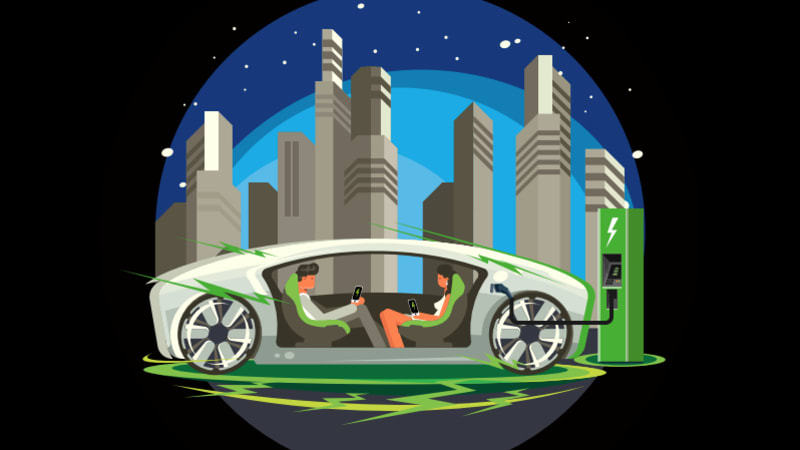Audi Repair Shop Doylestown
Call 267 279 9477 to schedule a appointment

As OEMs everywhere are frantically developing electric and automated technologies for their vehicles, turns out that the likelihood of a return on their staggering investments is slim. Or so it seems given the results in the 2020 Deloitte Global Automotive Survey, which questioned more than 35,000 consumers in 20 countries.
This is particularly the case in the U.S. market.
Consider “advanced technology.” The percentage of consumers surveyed who are unwilling to pay more than $500 — which is about $200 less than the cost of an iPhone 11 — for advanced safety technology in the U.S. is 60%.
Connectivity? There are 66% surveyed in the U.S. who don’t want to pony up the cash. It is 75% for infotainment, 58% for autonomy, and 54% for alternative engine solutions.
The price of gas would have to hit $5.33 per gallon before a majority of American consumers would consider buying an EV.
Oddly enough, people surveyed in India are actually more willing to pay for all of these things. The numbers for the unwillingness to pay more than 25.000 rupees (which is about $500 U.S.) for advanced tech in the categories are: safety, 49%; connectivity, 52%; infotainment, 57%; autonomy, 40%; and alternative engine solutions, 39%.
However, CEO Herbert Diess and his colleagues at Volkswagen Group should be somewhat unnerved by the German survey results, as the people there don’t seem interested in paying more than €400 for much of anything VW is working on.
In Germany, percentage of people unwilling to pay beyond that sum for advanced tech in these categories: safety, 71%; connectivity, 79%; infotainment, 84%; autonomy, 67%; alternative engine solutions, 58%.
And while on the subject of the Germans, only 36% think increased vehicle connectivity will be beneficial, which makes them highly skeptical vis-à-vis those in the U.S. (46%), Japan (49%), Republic of Korea (56%), China (76%), and India (80%).
Lest this begin to seem that the Indian driving public is embraced the notion of advanced technology unlike the rest of the world, turns out that when it comes to the percentage of consumers who think autonomous vehicles will not be safe, India leads the concern at 58%. The other countries are about the same in their feeling about the lack of safety of AVs: U.S.: 48%; Japan: 47%; Republic of Korea, 46%; Germany, 45%. An exception is China, where it is 35%.
The Deloitte results ought to give AV developers at OEMs everywhere (except Japan) some indigestion, because in the six big markets the percentage of those who “would most trust traditional automakers to bring fully autonomous vehicles to market” doesn’t crack 50% (except for Japan, where it is 65%). In the U.S., the figure is 31%, which is down from 47% in 2018.
But what about electric vehicles? Asked what would be under the hoods of their next vehicles, 59% of U.S. consumers say an internal combustion engine. Twenty-seven percent say a hybrid, and 8% a battery electric vehicle.
And while that 8% figure may please some OEMs given the low take rate for EVs to date, the other shoe drops when consumers are asked how much more than the cost of a comparable internal combustion vehicle they’d be willing to pay for an EV — 34% won’t pay more, and 29% would pay less than $1,000 more.
What would it take in the way of a gas price increase to have more than half of U.S. consumers be “much more likely” to consider an EV? When gas hits $5.33 per gallon, 58% will put an EV on their consideration list.
And OEMs who are offering or thinking about offering an EV in the U.S. that has a range of less than 200 miles ought to, yes, pull the plug, because 22% of consumers expect a minimum driving range of 400 miles, 19% insist on 300 miles and 22% think 200 miles is a must.
Herr Diess might be interested in knowing that the German consumer is even more demanding when it comes to both range and cost: 34% expect a minimum of 400 miles, 34% 300 miles, and 20% 200 miles. On the cost metric, 43% won’t pay more, and 24% expect to pay an EV premium of less than €800 ($888).
Attitudes change over time, and these may. But at the moment, at least, this pursuit of tech doesn’t seem like it will work out particularly well for the balance sheets of global OEMs.
Related video:
from Autoblog https://ift.tt/2TPjfzQ